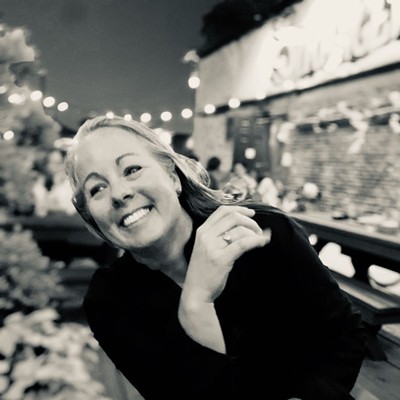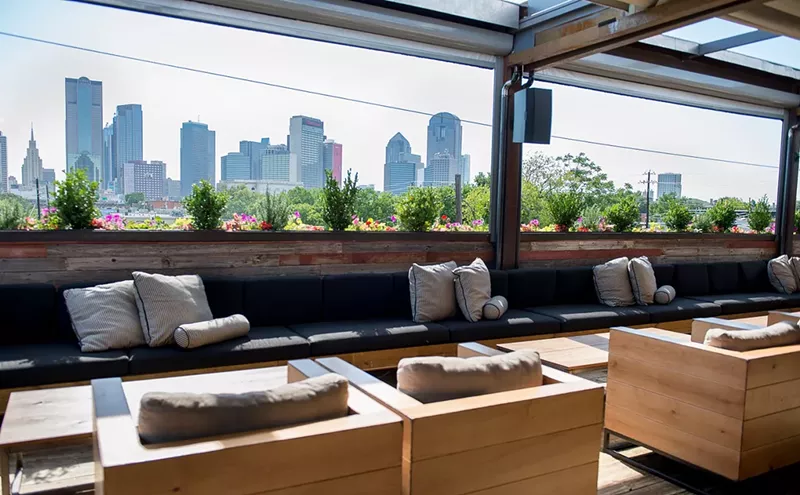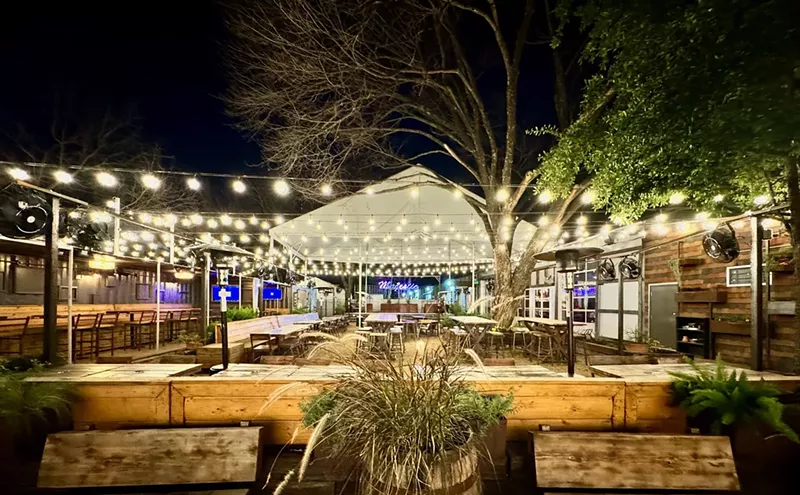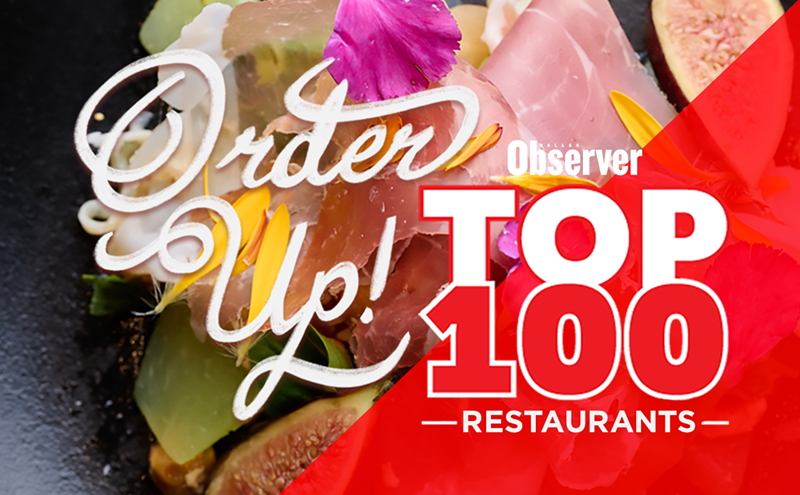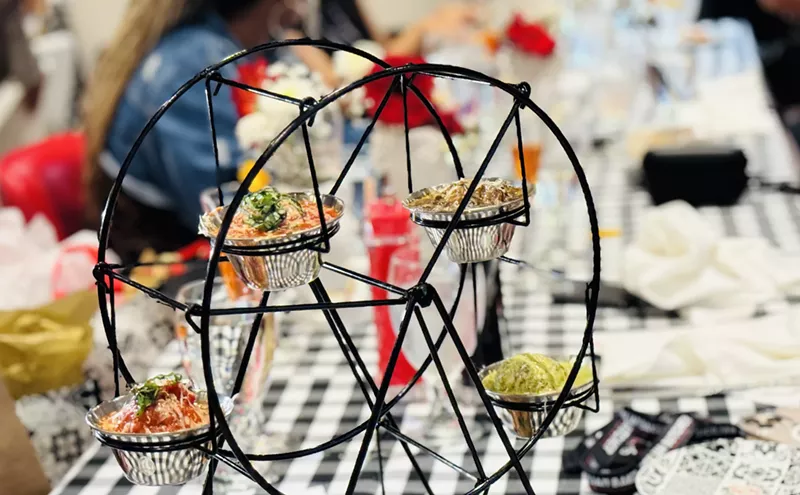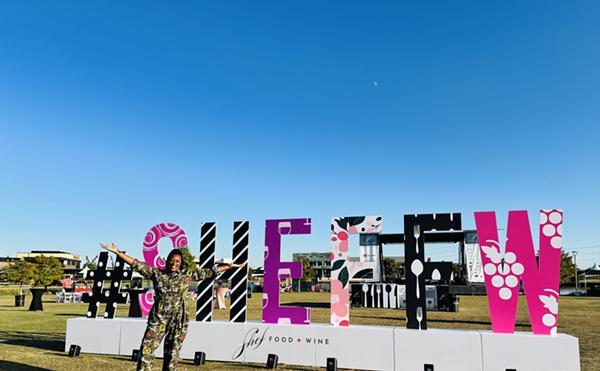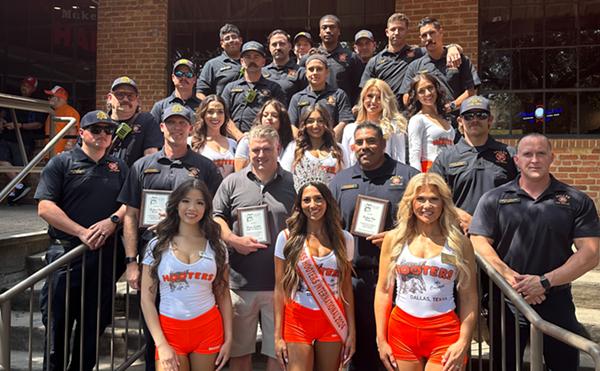Matt Spillers' parents, Allen and Donna Spillers, have had long careers in the local restaurant business. While raising their three boys in Dallas, dinner out was more than just a family meal together, but also an on-going education on how to run a restaurant.
Always drawn to the kitchen, after high school Matt enrolled in culinary school in New York and eventually moved to Oak Cliff, where he opened Eno's, then Oddfellows, which he co-owns. His latest project, Union Bear in the West Village, should open within weeks.
We sat down recently to discuss how he started his first two projects, how beer brings people together and, most importantly, how camaraderie and the right people often mean a successful business.
Your parents have had long careers opening and remodeling restaurants. Did you experience that much growing up? Yes, when they would go and do remodels and design projects, we'd travel with them. They also worked out of the house a lot so in the evening they'd always want to get out to eat. And we would pretty much scrutinize the place. We'd look at everything from the fixtures in the bathrooms to every aspect of the carpentry.
When did you first get into the restaurant business? I always loved cooking, so right after high school I got a job at Marie Gabrielle. I didn't know much about cooking, but the chef sort of took me under his wing. He would make me stay late and do extra chores and showed me things like how to properly use a knife. Eventually he gave me a recommendation for culinary school and I went to the CIA in New York.
Where did you externship while at the CIA? At Gotham Bar and Grill in New York City under Alfred Portale. It was really an interesting time to be there because that year he got Best Restaurant in the Nation by the James Beard House.
What did you learn from working in New York City? Humility and hospitality are probably the two biggest things.
What do you mean by humility? It's a very humbling business. What we do is a reflection of ourselves, and you're putting yourself out there and anyone can say what they think. It was also humbling in the fact that celebrity chefs would come in and work in the kitchen to work for free, just because there's always more to learn. What did you do when you got back to Dallas? I came back here and started working with my family, then got hired by a company to open a restaurant in Arkansas. It was an operations role and I learned about running the front of the house. Then, after two years I had an opportunity to come back to Dallas and work with the family again.
What was your first project here in Dallas? When I moved back, I lived in Oak Cliff and I always thought the Bishop Arts area was beautiful and had a lot of potential. For over a year we tried to get the support to open a restaurant in the area; we were close to a deal where Jack's Backyard use to be, but it fell through.
Why was it so difficult finding support? Because no one knew us and restaurants close all the time, so no one wanted to invest in us. The property options we had would have required so much money up front, we just couldn't do it.
How did Eno's come about? I met this potential business partner for lunch at Mattie's one day and he told me the space where Jack's Back Yard was just wasn't going to happen. Afterwards we were walking to our cars past the Eno's spot and this guy said, "I'm gonna buy this place and do something with it." And when he said that I told him, "Well, if you buy it let me know because this would be amazing."
A week later, the papers were on the desk and they leased it to us.
A wise old man once told me that restaurants ownership is the hardest job because no one will ever run it as well as you would, so you're there 24/7. You're opening your third. Are you a glutton for punishment? I understand that point, but there are other ways to do it. There are so many different aspects to running a business that you have to have people that specialize in each area. When we opened up Eno's I wore all those hats; along with my mom and dad. When you first open a new place, if you don't do it, then it doesn't get done.
The thing about camaraderie and growth is that you get to really start to focus in on specific parts of the company -- things that you specialize in. It's part of the reason you get into the business in the first place. So with growth, we [The Spillers Group] have been able to put people in specialized roles; then those team members help us grow even more.
Isn't the biggest battle just finding the right people for those roles? What I've found is that the restaurant business is a transient business. Often it's a temporary solution for people. So, you don't always get professionals in every position. Because of that, the business gets a bad rap. So, in our company, when we interview someone the first thing we ask ourselves is: "Who is this person? Where are their ethics? What's their background?"
A lot of the people we hire we've known for years. And what I've found is when you start to get the right culture and the right people in place, it's a magnet; the right type of people get attracted to it. We focus on the people that have the right character. Even if their skill set is not the best, we know we can work on that. We build our company around that. How did Oddfellows get started? Oddfellows was a community project. After we opened Eno's we met a lot of activists in the neighborhood and they held these Quality of Life events. Without any structure we started hosting "Better Block Projects" where we would essentially shut down a block and do guerrilla-style pop-up block parties. There would be things like a coffee shop, flower shop and bike shop. We'd have live music on these street and just showcase what we wanted for the neighborhood and maybe give someone inspiration for opening up their own place.
What we found is that all of sudden there's a bike shop open and Dirt, a flower shop. And Oddfellows was just inspiration from those events. We knew that at the time no one else was going to come to Oak Cliff and invest. So, we got together and we all threw in some money but with more structure, obviously. At first it was just a coffee shop and the idea just took off.
What about Union Bear? Well, it was again inspired by a quality of life change. I think the original idea came in 2010 when a group people who are activists in Oak Cliff got some recognition for their work and were on a local edition of NPR. I knew these guys well and that they're always on their phones. So, as I'm listening to them live I text them, "For every Eno's plug, free beer."
Then, it was just like clockwork, they started plugging us constantly, "We'll be planning our next event at Eno's ... " So, I learned that beer is powerful. From that I really started looking into opening a local brewery. But, because I run a restaurant it was impossible for me to open a brewery under Texas law. Eventually we came up with an idea of opening up a brewpub and the goal is to build a beer culture in this town.
Has the Dallas diner's palate changed recently? People are starting to ask, "What am I eating? Where did it come from? How did it get here? Why should I eat it?" What that means is that on a daily basis their expectation for food has changed.
Why is buying local so important to your company? We support people that pioneer efforts. That goes all the way to the farmers, to the trash service. If we have a company party, we're going to do it at a local place. If we're going to go drink a beer, we want to drink a local beer. If it progresses our neighborhood, then it's our responsibility to support it.


